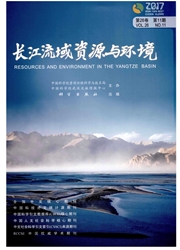

 中文摘要:
中文摘要:
河流是陆地生态系统和水生生态系统物质循环的主要连接通道,氦素在河流生态系统中发生复杂的物理、化学、生态过程,氮素的滞留影响输出形态、负荷,人为活动改变滞留过程,加剧水体富营养化。总结了国内外河流生态系统中的氮素滞留方面研究。滞留主要受控于生物因素和非生物因素,需要恢复河流生态系统的结构和功能,加强氮素滞留,改善区域水环境。
 英文摘要:
英文摘要:
River system was a major transportation channel between land ecosystem and aquatic ecosystem, and river ecosystem normally controls the nutrients output to the downstream by influencing nutrients cycling in the ecosystem. As a major element of eutrophication, nitrogen exists in different forms and concentrations, which are affected by physical, chemical and biological characteristics of river ecosystems, and the natural flow of nitrogen in a river may be disturbed by human activities, which in turn will accelerate eutrophication in rivers. The detailed information of nutrient retention mechanisms, influencing factors and ecological effects of human intervention were reviewed in this paper. With the increase of eutrophication as a major baffle to watershed ecosystem health, further study is needed to examine the effect of nitrogen retention in river ecosystems and corresponding restoration measures.
 同期刊论文项目
同期刊论文项目
 同项目期刊论文
同项目期刊论文
 期刊信息
期刊信息
